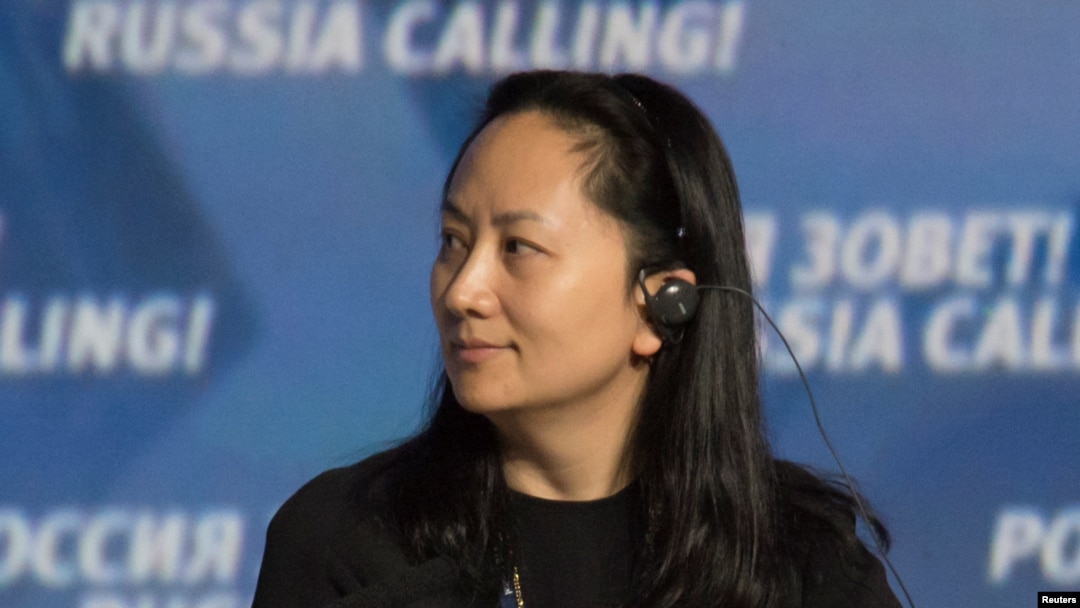Canada’s ambassador to China said a top Chinese executive has a strong case to avoid extradition to the United States in remarks one of his predecessors said were “mind-boggling.
Ambassador John McCallum told Chinese language media in Markham, Ontario on Tuesday that Huawei executive Meng Wanzhou has “quite good arguments” including “political involvement by comments from Donald Trump on her case.”
Canada arrested the daughter of Huawei’s founder at the request of the U.S. on Dec. 1. Meng is wanted on fraud charges that she misled banks about the company’s business dealings in Iran.
SEE ALSO: Explainer: What Happens Next in Huawei CFO Meng's Case?Trump said last month he might abandon the Meng case in pursuit of a trade deal with Beijing. That led some to suggest the case has been politicized and the U.S. is loosening its commitment to the rule of law and an independent judiciary.
“She has some strong arguments that she can make before a judge,” McCallum said in offering legal advice that shocked many in Canada.
McCallum also said Meng can argue against the extra-territorial aspect to her case and the fact that the allegations are related to Iran sanctions, which he said Canada did not sign onto.
If she is extradited to the U.S., the ambassador said: “That would not be a happy outcome.”
“And that would take years before it happens because she would have the right to appeal all the way to the Supreme Court of Canada.”
McCallum also said the U.S. could make a deal with China in which it would no longer seek her extradition, or a Canadian judge could decide she doesn’t have to be extradited.
SEE ALSO: China to US: Drop Huawei Extradition Request with CanadaThe case has severely damaged Beijing’s relations with Ottawa. China detained former Canadian diplomat Michael Kovrig and Canadian entrepreneur Michael Spavor on Dec. 10 in an apparent attempt to pressure Canada to release Meng. Her arrest has also infuriated China’s president.
Huawei has close ties to China’s military and is considered one of the country’s most successful international enterprises, operating in the high-tech sphere where China hopes to establish dominance.
“What I do know is that President Xi Jinping was very angry about this and so others in the Chinese government have taken the lead from him,” McCallum said. “I don’t know exactly why. Maybe it’s because Huawei is a national flagship company of China. It’s not just any company.”
David Mulroney, Canada’s former ambassador to China, called McCallum’s remarks “mind-boggling.”
SEE ALSO: Canada Dismisses China's Warning of Huawei Ban RepercussionsMulroney said giving advice to a judge is completely inappropriate when the government has been saying that Meng’s extradition is up to judicial authorities.
Mulroney said Canadian Prime Minister Justin Trudeau and Foreign Minister Chrystia Freeland have to distance themselves from the remarks of McCallum, who is a former cabinet minister in the government.
“It’s a setback and an unfortunate setback. It undermines that Canada is playing this by the book,” he said. “If it is a strategy it is a remarkably poor one.”
Trudeau and Freeland have stressed they can’t interfere politically in the case. Trudeau didn’t answer when asked by a reporter if he agreed with his ambassador that Meng has a strong case not to be extradited.
“We have always highlighted that Canada is a country of the rule of law and we will make sure that the rule of law is properly and fully followed. That of course includes an opportunity for her to mount a strong defense,” Trudeau said.
Freeland spokesman Adam Austen said a statement there has been no political involvement in the Meng case and said Canada is honoring its extradition treaty with the United States.
But opposition Conservative lawmaker Erin O’Toole said McCallum’s comments on Meng’s legal matters raises questions of political interference.


